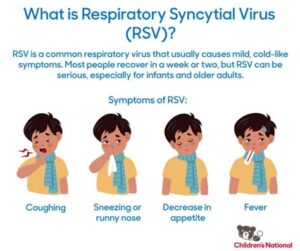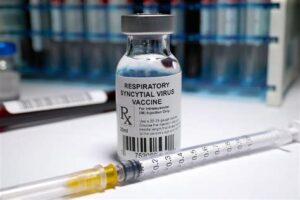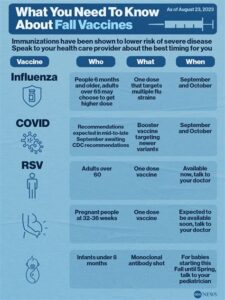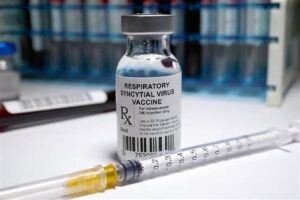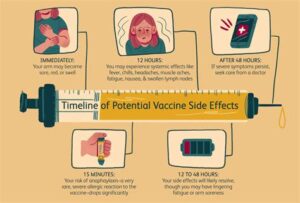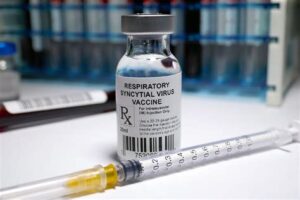Explore RSV: its transmission, risk factors, vaccine effectiveness, breakthrough infections, and essential preventive measures for better respiratory health. Discover more now!As respiratory syncytial virus (RSV) continues to capture attention, particularly in the wake of the COVID-19 pandemic, questions regarding vaccination and protection against this common virus have become increasingly relevant. RSV primarily affects infants and young children but can also pose risks to older adults and those with weakened immune systems. While vaccines are pivotal in providing a defense against various viruses, the nuances surrounding RSV vaccination can leave many wondering: Can you still contract RSV even if vaccinated? In this blog post, we will delve into the intricacies of RSV, explore how it spreads, assess the effectiveness of available vaccines, and discuss the potential for breakthrough infections. Additionally, we’ll outline essential preventative measures to enhance your protection and overall awareness surrounding RSV.
Understanding Respiratory Syncytial Virus (RSV)
Respiratory Syncytial Virus, commonly known as RSV, is a significant virus that primarily affects the respiratory system. It is known to cause bronchiolitis and pneumonia, especially in vulnerable populations such as infants and the elderly. The virus can be highly contagious and typically spreads through respiratory droplets when an infected person coughs or sneezes.
RSV is most prevalent during the fall and winter months, leading to seasonal outbreaks. Although most infants will have contracted the virus by their second birthday, symptoms can range from mild cold-like signs to severe respiratory distress. Understanding the behavior of RSV is crucial, especially for parents and caregivers.
People at higher risk of severe illness from RSV include premature infants, children with chronic lung diseases, and adults with heart or lung conditions. As the virus continues to pose health risks, particularly during peak seasons, it is essential to stay informed about the latest vaccination efforts and preventative measures to combat its spread.
RSV Transmission and Risk Factors
Respiratory Syncytial Virus (RSV) is a highly contagious virus that primarily affects the respiratory tract. Understanding how RSV is transmitted and identifying the various risk factors can help in managing and preventing outbreaks, especially in vulnerable populations.
The primary mode of RSV transmission is through direct contact with respiratory secretions of an infected person. This can occur when an infected individual sneezes or coughs, releasing droplets into the air, which can be inhaled by those nearby. Additionally, the virus can survive on surfaces for several hours, making it possible to contract RSV by touching contaminated objects and then touching the face.
Several factors contribute to an individual’s susceptibility to RSV infection. Infants, particularly those who are premature or have underlying health conditions such as chronic lung disease or congenital heart disease, are at a higher risk. Older adults, especially those with weakened immune systems or who have chronic health issues, also face increased vulnerability. Environmental factors, such as being in crowded settings during RSV season, heighten risk of exposure.
In summary, understanding the transmission pathways and identifying risk factors are crucial for protecting those most susceptible to RSV. Awareness and proactive measures can significantly reduce the chances of infection and spread.
Effectiveness of Vaccination Against RSV
Vaccination against Respiratory Syncytial Virus (RSV) has gained significant attention in recent years due to its potential to drastically reduce the incidence and severity of RSV infections. Numerous studies indicate that vaccines designed to target RSV can offer crucial protection, especially for high-risk populations like infants, elderly individuals, and those with compromised immune systems.
One of the primary objectives of RSV vaccination is to stimulate an immune response that aids in the body’s defense against the virus. In clinical trials, certain vaccines have demonstrated a remarkable efficacy rate, significantly lowering the chances of severe RSV infection. For example, one such vaccine has shown an effectiveness of over 80% in preventing hospitalization due to RSV in high-risk infants.
However, it is essential to understand that while RSV vaccines can significantly mitigate the risk of infection, they do not guarantee complete immunity. Breakthrough infections, though less severe, can still occur, emphasizing the importance of combining vaccination with other preventative measures s
Potential for Breakthrough RSV Infections
Despite the advancements in RSV vaccination, there remains a chance for breakthrough RSV infections. These infections occur when individuals who have been vaccinated against RSV still become infected. Breakthrough cases are crucial to understand as they can impact public health strategies and the perception of vaccine effectiveness.
Several factors can contribute to the possibility of breakthrough infections. Firstly, the effectiveness of the vaccine may vary between individuals, influenced by factors such as age, health status, and the presence of underlying health conditions. Furthermore, as RSV undergoes mutations, certain strains might evade the immune response generated by the vaccine.
It is also worth noting that the timing of vaccination plays a significant role. For instance, immunity may wane over time, heightening the risk of infection if the vaccine was administered long before RSV season peaks. Therefore, understanding the dynamics of breakthrough RSV infections is essential for ongoing vaccine development and refining vaccination strategies.
Preventative Measures and Other Considerations
Preventing Respiratory Syncytial Virus (RSV) infection is essential, particularly for high-risk populations. While vaccination can significantly reduce the severity and occurrence of RSV, it is still vital to implement additional preventative measures to protect oneself and others.
- Regular hand hygiene: Wash your hands frequently with soap and water for at least 20 seconds, or use an alcohol-based hand sanitizer.
- Avoid close contact: Minimize interactions with individuals exhibiting cold-like symptoms.
- Keep surfaces clean: Disinfect commonly touched surfaces such as doorknobs, light switches, and mobile devices.
- Limit exposure to crowds: During peak RSV season, avoid crowded places, especially if they are indoor settings.
In addition to these measures, it’s crucial to be aware of other considerations surrounding RSV. Understanding the severity of the virus in vulnerable populations, such as young infants, older adults, and individuals with compromised immune systems, can help underscore the importance of taking precautions. Moreover, individuals should monitor their health and seek medical attention promptly if they experience severe symptoms.
Staying informed about RSV and its transmission can greatly aid in reducing the risk of infection. Engaging with healthcare providers for personalized advice based on individual circumstances and risk factors can also enhance overall protection against RSV.
Frequently Asked Questions
What is RSV?
RSV stands for respiratory syncytial virus, which is a common virus that causes respiratory infections, especially in young children.
Can vaccinated individuals still contract RSV?
Yes, even if vaccinated against certain viruses or infections, individuals can still contract RSV as there is currently no vaccine specifically approved for RSV.
What are the symptoms of RSV?
The symptoms of RSV can include coughing, sneezing, runny nose, fever, wheezing, and difficulty breathing.
Who is at higher risk for severe RSV infection?
Infants, elderly adults, and individuals with weakened immune systems or pre-existing respiratory conditions are at higher risk for severe RSV infections.
How can RSV be prevented?
Preventive measures include frequent handwashing, avoiding close contact with sick individuals, and practicing good respiratory hygiene.
Is there a treatment for RSV?
There is no specific antiviral treatment for RSV; management primarily focuses on relieving symptoms and supportive care, especially for severe cases.
Are there any vaccines in development for RSV?
Yes, there are several RSV vaccine candidates currently in clinical trials, aimed at providing protection, especially for high-risk populations.
